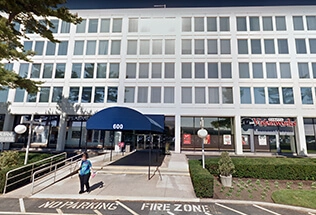People often use the terms “negligence” and “malpractice” interchangeably, but they actually refer to different legal concepts. Below, we’ve outlined the true definitions of negligence and malpractice so that you can better understand your legal rights and, thus, better protect yourself in the event that you or a loved one is injured due to the fault of another.
Along with this, you should know that if someone has committed negligence or malpractice against you or a loved one, you may be entitled to financial compensation. For assistance, please call the seasoned New York City personal injury attorneys of Schwartzapfel Lawyers at 516-342-2200 or schedule your free consultation online today. Alternatively, continue reading.
What Is Negligence?
In simple terms, negligence refers to the failure to fulfill one’s responsibilities, resulting in harm to another person. This definition holds true in the legal context as well.
Negligent behavior usually consists of actions but can also consist of omissions when there is some duty to act. The key elements of negligence include: (1) a duty of care; (2) a breach of that duty; (3) causation; (4) and damages:
- Duty of Care: This refers to the responsibility one person or party has to avoid causing harm to another.
- Breach of Duty: A breach is a violation or infringement of a legal obligation. In the context of negligence, it refers to the failure of a party to meet the standards of behavior established by the duty of care.
- Causation: For negligence to be proven, two types of causation must be established: “cause in fact,” also known as the “but-for” test, and proximate (or legal) cause, which includes the element of foreseeability.
- Damages: This refers to any harm or injury caused by the action [or inaction] of the responsible party.
As well, there are effectively two (2) types of negligence in law:
- Civil negligence, which can lead to a case in court where the affected person seeks compensation.
- Criminal negligence, in which the person who committed the negligent act may serve time behind bars.
Criminal Negligence
Criminal negligence occurs when the offending party knows that it’s almost a certainty that someone will get hurt, but they still fail to act appropriately and responsibly.
Examples of criminal negligence would be significantly exceeding the speed limit during a rain or snowstorm, leaving a loaded weapon within reach of children, or allowing your aggressive dog to roam around without a leash.
In all of these situations, it’s clear that there is a substantial risk of harm to others. Failure on the offending party’s part to mitigate the risk shows blatant disregard for other people’s safety to an extent that may be considered criminal.
Civil Negligence
Civil negligence occurs when the offending party makes a mistake that could have easily been avoided with better oversight. The standard of civil negligence is a simple question: Would due diligence have prevented this incident? If the answer is yes, the offending party’s actions may be considered civilly negligent.
For example, giving someone a food or a medication that is a known common allergen without asking first if they have a known allergy could be considered civilly negligent. In the workplace, leaving an unlabeled chemical that can cause eye injury within reach of workers could result in workers being injured due to a safety risk that wasn’t clearly identified for everyone. That injury would likely be considered a result of civil negligence.
For a free consultation and/or case evaluation, call Schwartzapfel Lawyers at 516-342-2200 or schedule yours online today. No matter your situation, it will be our honor and privilege to fight for you and the ones you love.
What Is Malpractice?
Malpractice is a specific type of negligence. It concerns certain persons and/or professionals who are held to a higher standard because of heightened expectations when it comes to due diligence and risk mitigation,as their mistakes can lead to inordinately severe consequences.
For instance, when the offending party is some kind of licensed, educated, certified professional, malpractice may be at issue. Note: While most commonly associated with doctors, malpractice can be applied to many other types of professionals (e.g., lawyers, therapists, accountants, as well as practicing members of other heavily regulated fields).
Examples of malpractice include but are not limited to: doctors failing to check a patient’s allergies or medical history before providing treatment, lawyers pushing clients into accepting an arrangement without fully explaining all available options, or a financial advisor recommending an investment that they have a personal interest in.
How Are People Protected From Negligence vs. Malpractice?
Professionals have a duty to protect their patients, customers, or employees from acts of negligence or malpractice. Business owners and professionals are required to maintain current licenses and have the proper education for their positions. They’re also required to carry a special type of insurance to protect them in the event someone takes them to court for negligence or malpractice.
Liability insurance and malpractice insurance are often very expensive. Insurance companies don’t want to issue these types of insurance to professionals they declare to be high-risk, so they’ll set strict requirements to make insurance harder to obtain.
If a professional is found liable for malpractice or negligence, one of three (3) outcomes will likely occur:
- Loss Of License: In the most severe cases of egregious patient mistreatment, the professional can lose their license or their ability to run a business. Loss of licensure can end their business or practice forever.
- Insurance Increases: Just like your car insurance rates may go up after an accident, liability and malpractice insurance rates may go up after a court case. Professional insurance is already very expensive, and a price hike can significantly cut into a professional’s bottom line.
- Loss of Insurance: The last outcome is that legally required insurance may become unobtainable for a businessperson or licensed professional, which can happen due to rising costs or a lawsuit leading to the defendant being deemed uninsurable. If they can’t get insurance, they can no longer work in their profession.
Professionals and business owners risk the loss of their livelihood or career if they’re found liable for negligence or malpractice. Careless mistakes are huge risks that place them in jeopardy, which should cause them to think very carefully before they act.
How Do You File a Claim for Negligence or Malpractice?
As the type of claim impacts who is actually being held responsible in court, it is absolutely critical that you file the right one for your situation. For instance, filing a claim against a doctor for negligence would likely prove less effective than filing a claim for malpractice.
And while you have the legal right to file a civil claim without legal representation, doing so can be risky due to potential errors in wording and claim type selection. You should note, too, that insurance companies often retain highly skilled and experienced lawyers, which can put you at a disadvantage if you are unprepared to face them alone.
So, please, don’t leave your financial future to chance. Schwartzapfel Lawyersonly take cases we know we can win. Your skilled legal team will file the claim properly after reviewing your case. We’re prepared to fight with you against even the most formidable negligence or malpractice attorneys. Call 516-342-2200 today.
Where Does a Negligence or Malpractice Settlement Come From?
Certain types of professionals are required by law to carry malpractice insurance, which is a type of insurance specifically used when someone files a malpractice complaint in court. The malpractice insurance company is held liable for financial compensation if it’s awarded to you.
Liability insurance is similar to malpractice insurance for a different group of business owners. Liability insurance isn’t always required, but it’s highly recommended for companies that operate in work environments where there are risks present. Construction companies often have liability insurance.
The defense will likely attempt to minimize your claim for compensation by denying liability or attempting to settle for far less than you’re legally entitled to. To this end, the award-winning legal team at Schwartzapfel Lawyers will fight to make sure that the offending professional or business doesn’t escape justice and that you are made financially whole.
What Should You Do If You Experience Negligence or Malpractice?
If it is safe to do so, you should gather all relevant photos, videos, and witness statements, as well as other forms of evidence that may be present at the scene of the accident. Put together, these documents will work to cohesively support future claims.
That said, if injured, you should first seek medical treatment — and you should do so without delay. This is because by waiting, you may inadvertently cause your injury to worsen and your discomfort level to increase. As well, waiting can complicate your legal case by diminishing the link between the accident and your injuries. All this to say: If you’re involved in an accident, get the care you need now.
And so, you should get qualified medical treatment as soon as possible after any accident. Remember, too, that if cost is a concern, the right personal injury attorney can help you recover financial compensation for medical bills you incurred as a result of any negligence or malpractice. The bottom line? What happened isn’t your fault, and you shouldn’t be held responsible for the costs of care.
Once you’ve been attended to by a qualified medical professional, you can call Schwartzapfel Lawyers at 516-342-2200 or schedule with our award-winning team online. The earlier we’re able to start documenting evidence and taking photos, the stronger your case will become.
In the meantime, you can protect your financial future by not speaking to the offending party or their legal representation about your situation. Additionally, you should never accept anything they offer you without first speaking with your attorney.
Get The Representation You Deserve!
Whether someone committed negligence or malpractice against you, it’s absolutely essential that you seek experienced legal counsel so that you can better understand your options and protect your rights. Remember, professionals and business owners have a responsibility to adhere to industry standards in order to maximize safety and mitigate risks. Moreover, if they fail to act on any matter of consequence, the law may hold them accountable.
So, please, don’t wait until it’s too late. Instead, call the experienced New York personal injury attorneys of Schwartzapfel Lawyers at 516-342-2200 for a free consultation and so much more. Your financial future is worth it.
Start recovering today – call now!
DISCLAIMER: Nothing on this page should be considered legal advice. You should seek the appropriate counsel your situation requires. For more information, call 516-342-2200 now!
Sources:
Schwartzapfel Lawyers, P.C. | Fighting For You
Criminal Negligence | UNC School of Government
5.2 Civil vs. Criminal Liability – Business Law I Essentials | OpenStax
About Physician Discipline | FSMB
Summary Medical Liability/Medical Malpractice Laws | National Conference of State Legislatures
















